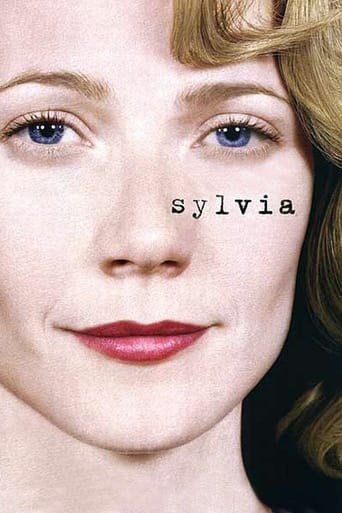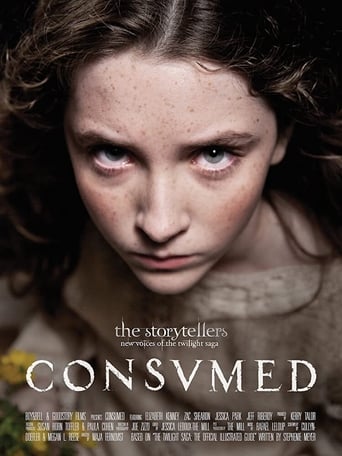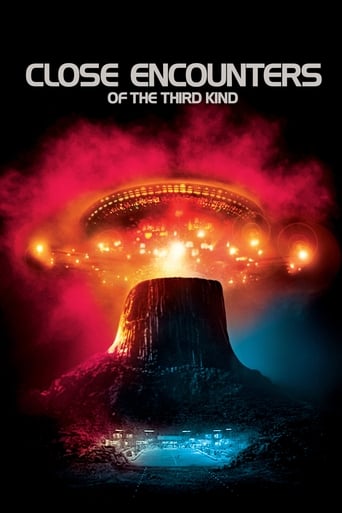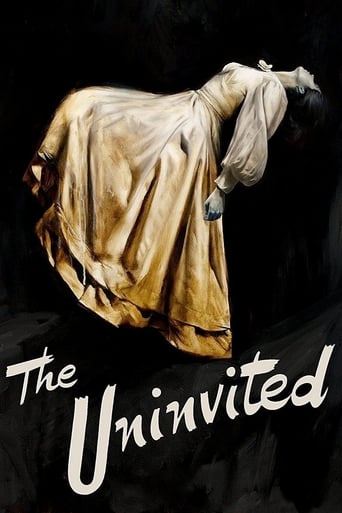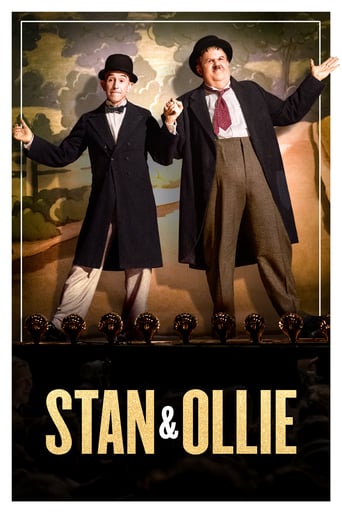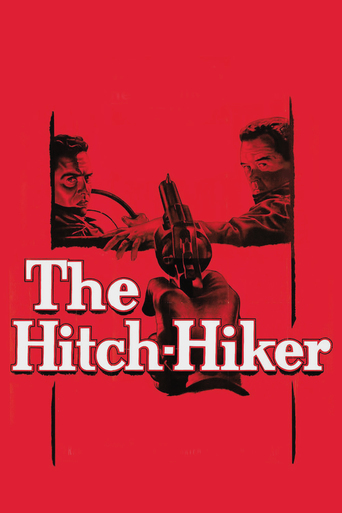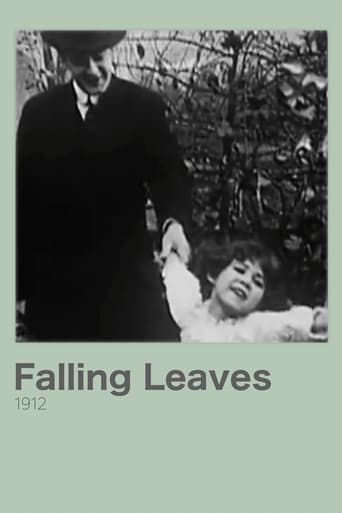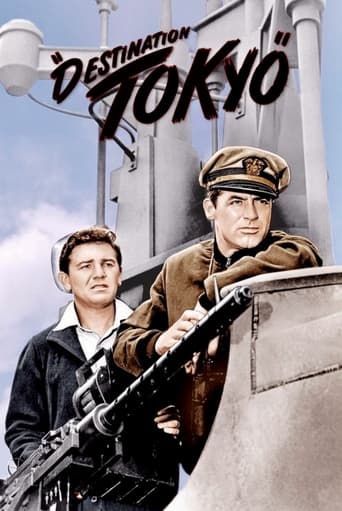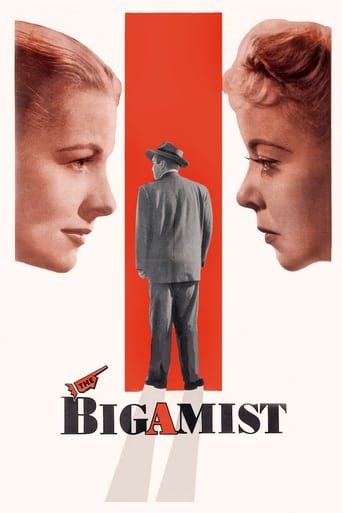


The Bigamist
San Francisco businessman Harry Graham and his wife and business partner, Eve, are in the process of adopting a child. When private investigator Mr. Jordan uncovers the fact that Graham has another wife, Phyllis, and a small child in Los Angeles, he confesses everything.
-
- Cast:
- Joan Fontaine , Ida Lupino , Edmund Gwenn , Edmond O'Brien , Kenneth Tobey , Jane Darwell , Peggy Maley


Similar titles

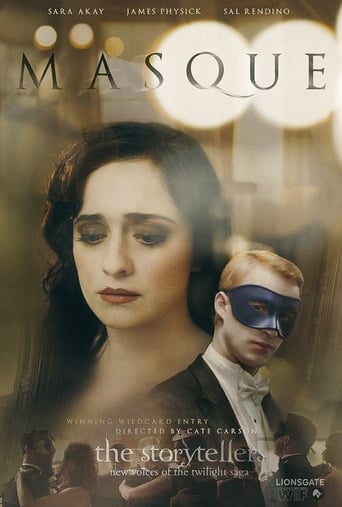
Reviews
That was an excellent one.
Just perfect...
I cannot think of one single thing that I would change about this film. The acting is incomparable, the directing deft, and the writing poignantly brilliant.
I wanted to like it more than I actually did... But much of the humor totally escaped me and I walked out only mildly impressed.
Edmond O'Brien is horrifically miscast as the titled role- he's always being upstaged by his clearly much more effective two female costars all the darn time-to be fair, they're played by extremely charismatic and extraordinarily gifted actresses. He also does a terrible job acting wise, as he has no idea what to do with his character at all, so he unwisely decides to play him as a confused dope with no characteristics at all- thus, the audience doesn't genuinely care about him in the slightest. It also doesn't help that he is supposed to portray an unlikable character sympathetically but due to his monotone vocal range and his lack of passion in the role, he causes the main subject to become less interesting than the horrendous bus tour that sets the premise up in the first place.The moralizing tone overwhelmed the film's script to the point one would swear they were accidentally watching a Hays Code approved "melodrama" which it totally is. This is the only time Ida Lupino ever completely directed herself and it clearly shows why- she doesn't seem to firmly know which job to pursue first, and without any clear decision making on how to reunite those two prospects together, she exerts an unintentional and overwhelming sense of sloppiness upon the whole film itself. The visuals suffer to the point that it looks more like a juvenile televised soap opera than an independent film made by capable adults. The actors don't know what to do with themselves- sometimes such lack of direction helps spur creativity (Joan Fontaine does a wonderful job at expressing her character's inner thoughts- even more astonishing is Ida's self-determination whilst acting as you can feel that she's doing her best under the rather unfortunate circumstances) but most of the time, it really diminishes the actors' and crew's self-confidence to the point of not being able to do their best within their role. This is downright depressing as Ida Lupino showed her true talents within both departments- just not when they're together on the same project.The script, already hampered and trampled upon by a really unpleasant waging censoring finger, is already hard to swallow within its logic department- why did Edmond O'Brien ever think he could get away with bigamy and why did he go along with his first wife's adoption plans as it was made apparently clear that any place in charge of taking care of minors need to search very deeply within its applicants in order for the child to be placed in safe, and reliable hands; why was Edmund Gwenn even allowed to go back to the orphanage after his monumental and unmentionable failure if said mistake was that severe; if the first wife really was a major operative within the company, shouldn't she have been already to Los Angeles to the point that she's well acquainted with the place? Most importantly, why did he never let his second wife know the truth from the moment that he found out that she was pregnant- heck why didn't he tell anyone about the information as he could explain his mistake and accept full responsibility of the situation much to his newfound moral approval and sensitivity to his spouse's sanity as well as fostering respect for his mistress' dilemmas? Aside from many more logical problems, the script should have been really interesting as it made a social problem much more palatable to moral tastes- it sadly fails because the script's so focused on making the controversial issue palatable to contemporary audience reception that it ultimately makes it blandly heavy-handed to the point that the film quickly wears its welcome out before it can hit any dramatically interesting scenes. It's a true shame, as this was one of the few mature films to openly deal with taboo subjects in a time of insanely restrictive censorship and it's clear that everyone tries their absolute hardest in trying to make a badly written tearjerker seem believable. It's just that no one actually bothered to mend that script up so to make it less puritanical and more openly frank or to rid that same production of any massive tonal failures so as to achieve a sense of control in spreading its ideas. If you're still curious about Ida Lupino's directing career, please check out her other films, especially Outrage- an amazing film both of its time and also ahead of its time in its depiction of rape. Please avoid The Bigamist as one would avoid bigamy in real life.
Ida Lupino, born into a British show business dynasty, was as convincing as any foreign player at passing for American in movies. What's more, she got to direct seven features, unheard of for a woman in the late 1940s and '50s. The Bigamist was the last of consequence; probably the best is The Hitch-hiker of 1953.The major problem with the movie under review is its title. If we didn't know this fact about Edmond O'Brien until it transpired in the plot, we would have had a lot more to bite on. So the extended play between O'Brien and Lupino (as actress) loses tension because we already know how it will play out. What's more, most of the story is told in flashback, which means that there is other information we carry right through the movie that we would have found more nourishing to gain later. It cries out to be told chronologically, with the arrival of Edmund Gwenn postponed until much later. And indeed the opening sequence in Gwenn's office is directed over-emphatically by Lupino, pointing us towards concerns about O'Brien's character.A small issue but one that diminishes the film concerns the coy remarks, occurring in two separate scenes, about Miracle on 34th Street and Gwenn's role in it. Indeed, that O'Brien and Lupino meet on a studio tour bus interrupts the sequence with name-dropping to no useful purpose.But I want to end positively. The acting is first rate - Joan Fontaine is especially good in what could easily have become a thankless role - and the willingness to tackle difficult material (including out-of-wedlock pregnancy) is wholly admirable.
The film starts with a husband and wife, Harry (Edmond O'Brien) and Eve (Joan Fontaine), going through the procedure of adopting a child with adoption official Mr Jordan (Edmund Gwenn). Mr Jordan senses something strange about the behaviour of Harry and so investigates his past which takes him to Los Angeles where he discovers that Harry uses a different name and has another wife Phyliss (Ida Lupino) and child. The main bulk of the film is told in flashback as Harry explains the circumstances to Mr Jordan. At the end, we are left to decide who, if any, of the women will stand by him as a judge announces that sentence will be passed in a week's time.....The film plays out so that you are sympathetic to all 3 major stars - O'Brien, Fontaine and Lupino - and has an ambiguous ending to some. I find that the ending is clear as the final shot says it all. From the beginning, I thought that Mr Jordan was suspicious for no good reasons and that his delving into the past as he did was unrealistic. We are led to believe that he had made a mistake in the past to explain his thoroughness, but he was still a jobsworth to the power of a million. I didn't like him! When Harry goes on a Beverly Hills tour of houses of movie stars (where he meets Phyliss), we are shown the house of Edmund Gwenn, who plays Mr Jordan in the film. Harry should have stopped the bus and torched the place! I think the film needed more excitement but its OK.
This friendly writer finds O'Brien an irresistibly colorful actor and was not unpleased with his almost kabuki _expressivity and glacé grimaces in THE BIGAMIST. Besides, the whole cast is worth watchingMrs. Fontaine and Mrs. Lupino.Mrs. Fontaine proves again her fantastic gifts--dramatic as well as physical.The script is acceptable in the sense that the protagonist' anxious expression is intended probably, and noticed as such by the old guy. As for the rest, I can not really say that Mrs. Lupino became my favorite director. The movie feels somewhat stale, somewhat stilted; yet for me the cast was a compelling reason to somewhat enjoy it.

